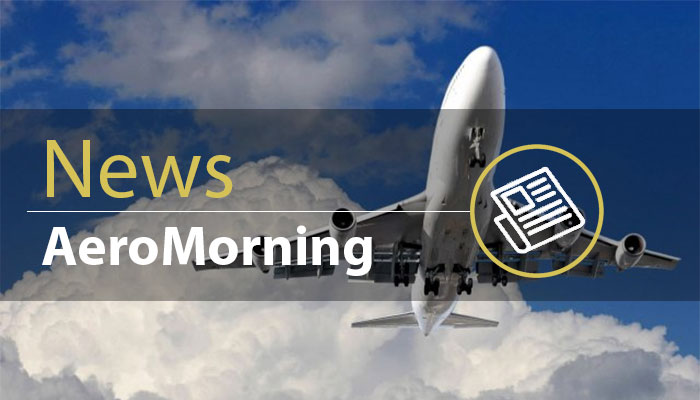- The KASS regional system was developed by Thales Alenia Space as prime contractor under a contract signed with the Korea Aerospace Research Institute – The project has been strongly supported by the European Commission, the European Union Agency for the Space Programme (EUSPA), the European Space Agency (ESA), the European Aviation Safety Agency (EASA) and the French Space Agency (CNES).
Cannes, January 29, 2024 – The Korea Augmentation Satellite System (KASS) developed by Thales Alenia Space as prime contractor has been officially certified by the Korean authorities. Now operational, this navigation system is the result of a collaboration between Thales Alenia Space — a joint venture between Thales (67%) and Leonardo (33%) — and the Korea Aerospace Research Institute (KARI) for the Korean Ministry of Land, Infrastructure and Transport (MOLIT).
Thales Alenia Space’s contract with KARI calls for the delivery of ground infrastructure, which the company began rolling out in 2020. The KASS system is initially operating via the MEASAT-3d geostationary satellite, launched in 2022, and will soon be supplemented by KOREASAT 6A which is under development by Thales Alenia Space for KT SAT Corporation Ltd, the Republic of Korea’s leading satellite communications operator. KOREASAT 6A will carry a satellite-based augmentation system (SBAS) payload designed also by Thales Alenia Space to improve service continuity and operational availability. Developed in accordance with the international standards set by the International Civil Aviation Organization (ICAO), the Korean regional system will initially focus on aircraft applications, especially Safety of Life services used in flight phases, including landing, to enhance flight safety and efficiency, while reducing the environmental impact of aviation. It will be interoperable with the world’s other SBAS satellite navigation systems to guarantee flight safety as planes transition between different zones.
“Implementation of the KASS satellite navigation system marks a significant milestone in our close collaboration with KARI,” said Hervé Derrey, CEO of Thales Alenia Space. “Together, we’ve charted an innovative course for optimizing satellite navigation in the Republic of Korea, perfectly illustrating the synergy of our expertise. With the KASS system, we’re enabling Korean government bodies to develop applications aimed at improving safety and travel efficiencies for people in various areas of transport. We’re proud to be playing a central role in the delivery of this system, reflecting our commitment to innovation and security in satellite navigation.”
KASS, the second SBAS system developed by Thales Alenia Space, is derived from EGNOS, the European Geostationary Navigation Overlay System. It is designed to optimize the positioning and navigation performance of the existing GPS constellation and includes upgrades compatible with the Galileo and KPS (Korean Positioning System) constellations. It adds value by guaranteeing the integrity, availability and continuity of services and improving positioning accuracy. KASS will reduce GPS positioning errors to about 1 meter from the current 15 to 33 meters to ensure geolocation accuracy throughout the country. The Republic of Korea will later extend its services to other applications such as public safety, road transport, shipping and science.
About EGNOS
EGNOS (European Geostationary Navigation Overlay Service), one of the European Union’s flagship programs, is a satellite-based augmentation (SBAS) system designed to improve positioning signals delivered by the Global Positioning System (GPS). The EGNOS Safety of Life (SoL) service, commissioned in 2011, was developed by Thales Alenia Space as prime contractor and is currently managed by EUSPA.
The EGNOS system enhances the accuracy, reliability and integrity of positioning signals by augmenting Global Navigation Satellite Systems (GNSS) and is used in a wide range of sectors, from aviation and shipping to precision farming.
In aviation, EGNOS enables precision approaches to airports without requiring ground guidance systems and helps optimize routing and altitudes to shorten flight times, thereby reducing fuel burn and CO2 emissions.
ABOUT THALES ALENIA SPACE
Drawing on over 40 years of experience and a unique combination of skills, expertise and cultures, Thales Alenia Space delivers cost-effective solutions for telecommunications, navigation, Earth observation, environmental management, exploration, science and orbital infrastructures. Governments and private industry alike count on Thales Alenia Space to design satellite-based systems that provide anytime, anywhere connections and positioning, monitor our planet, enhance management of its resources and explore our Solar System and beyond. Thales Alenia Space sees space as a new horizon, helping build a better, more sustainable life on Earth. A joint venture between Thales (67%) and Leonardo (33%), Thales Alenia Space also teams up with Telespazio to form the parent companies’ Space Alliance, which offers a complete range of services. Thales Alenia Space posted consolidated revenues of approximately €2.2 billion in 2022 and has around 8,500 employees in 10 countries with 17 sites in Europe and a plant in the US.
www.thalesaleniaspace.com










Be the first to comment on "Korea’s KASS satellite navigation system certified by national authorities and enters operational service"